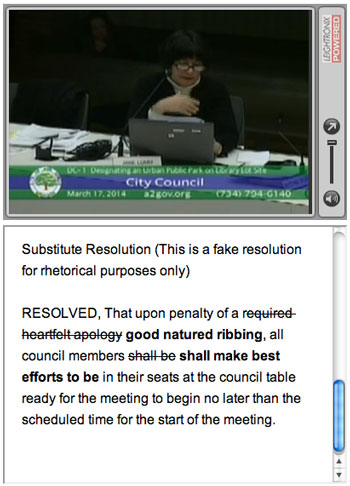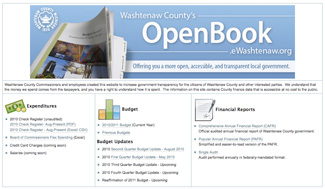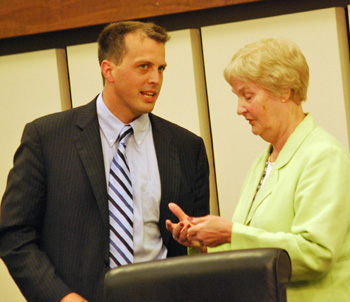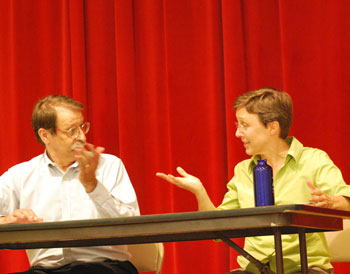Column: City Council as Entertainment
About the author: Dave Askins is editor and co-founder of The Ann Arbor Chronicle. He’s covered every Ann Arbor city council meeting since September 2008.

This is a mock-up of how the city of Ann Arbor might provide a text box with councilmember amended text in real time, just underneath the online CTN video stream of council meetings. (Art by The Chronicle.)
If you’ve never watched an Ann Arbor city council meeting in person or on Community Television Network, you really should give it a try sometime. The next chance to watch your local elected officials in action is April 7, 2014 with a scheduled start of 7 p.m.
As an entertainment option, I’d allow that a city council meeting probably falls somewhat short of the Netflix series “House of Cards” or the ABC series “Scandal.” That’s actually OK with me – because journalists in those dramas have been shoved in front of trains and shot dead on the street.
But any long-running TV series is more entertaining to watch if you understand exactly what is going on. If you have elderly eyes, for example, you might not be able to see if that text message Frank Underwood received was from Zoe Barnes or Olivia Pope. It makes an episode hard to follow, if you don’t know who sent Underwood that text message.
One of the hardest parts of a city council meeting to follow – even if you are well-versed in the subject matter – is any deliberation featuring wordsmithing of amendments to text.
So in the interest of making Ann Arbor city council meetings more entertaining, I’d like to propose a simple step toward helping the viewing public understand exactly what’s going on: Let the public see amended text in real time.
How could councilmembers, in real time, make visible to the public proposed amendments to text already under consideration?
An easy technical solution already exists.
It’s free, and it requires no registration or creation of user accounts. And it’s not Google Drive. [Full Story]






